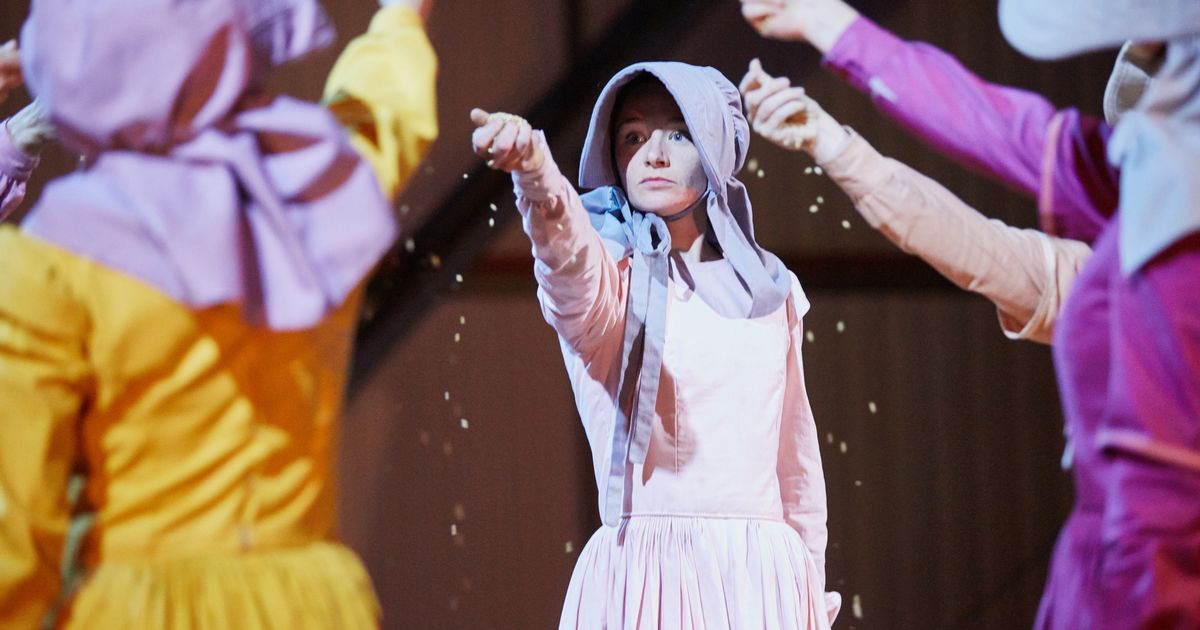{150}, Royal Opera House Stores, Aberdare
reviewed for The Times, 1 July 2015
In 1865, a God-hardened group of Welsh settlers set off for Argentine Patagonia, introducing the Welsh language, music and Congregationalist chapels to the region. Now, 150 years later, artist Marc Rees has taken over the full resources of the National Theatre Wales, and its Welsh-language counterpart Theatr Genedlaethol Cymru, to create an astonishing work of cultural memory, weaving together archive recordings, oral histories and traditional song in this bilingual celebration of what it means to be a nation. This is installation theatre at its best.
In a remarkable act of trust, the Royal Opera have given Rees’s team the run of their working storehouses in rural Aberdare. It’s an appropriate site, not just because of the innate theatricality of this cavernous corrugated maze, but because we step out into the Rhondda hills in which most of the settlers grew up before abandoning them for the colonial adventure.
The idea of desire runs through {150}: desire for the horizon, for the next panorama, for some kind of completeness. In his homage to the little corner of Wales that still survives beneath the Andes, Rees runs close to whitewashing the dark side of this Welsh colonialism: a legendary explorer is still celebrated for surviving an “unjustified attack by vicious Indians”.
Our team blame the Spanish and English for brutalising these “savages”, a hedge that seems at odds with the tones of manifest destiny emanating from the Welsh nationalist preacher Michael D. Jones, the group’s spiritual leader. If anything, it’s when {150} gets closest to the project’s religious roots that it seems most honest and asks if any such venture can succeed without the armour of uncompromising faith.
We spend two and a half hours walking the warehouse maze (bring sensible shoes). Highlights include a verse-speaking youth troupe, although the following skit does begin to grate when stagey children try post-modernism and cod-feminism. It’s a feminism far better expressed by our dance-based encounter with the explorer Eluned Morgan, like Odysseus lashing herself to a mast to observe the heart of a sea storm and survive. Savage and beautiful, this is the National Theatre Wales as a true national theatre.







